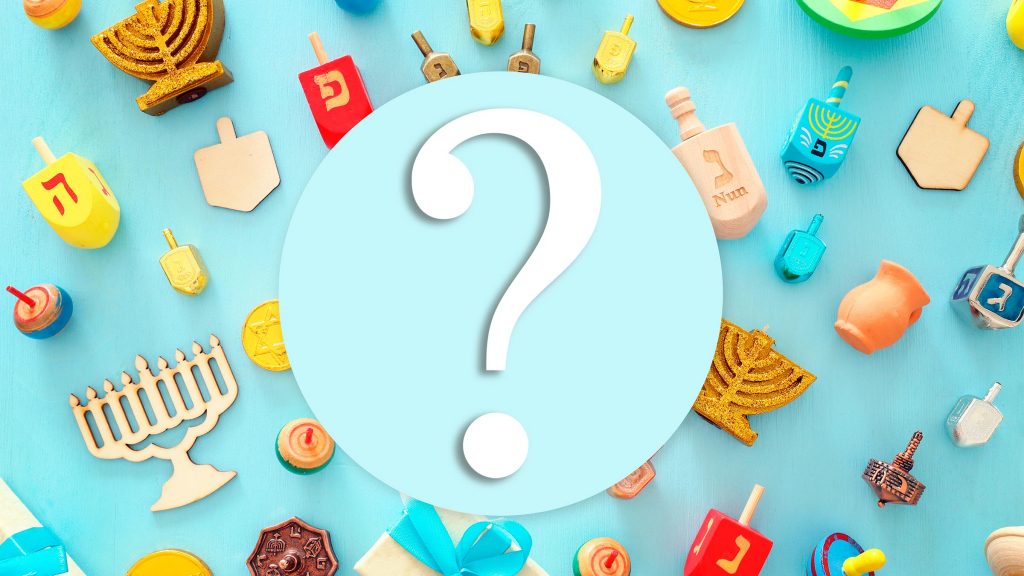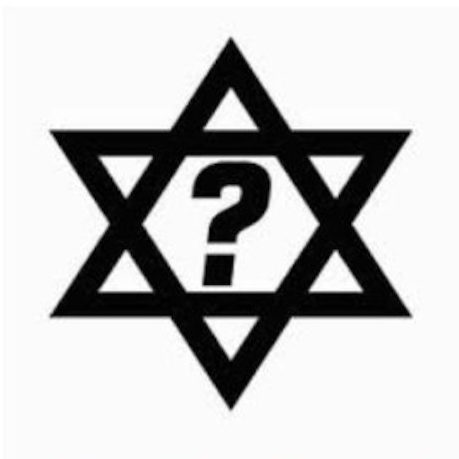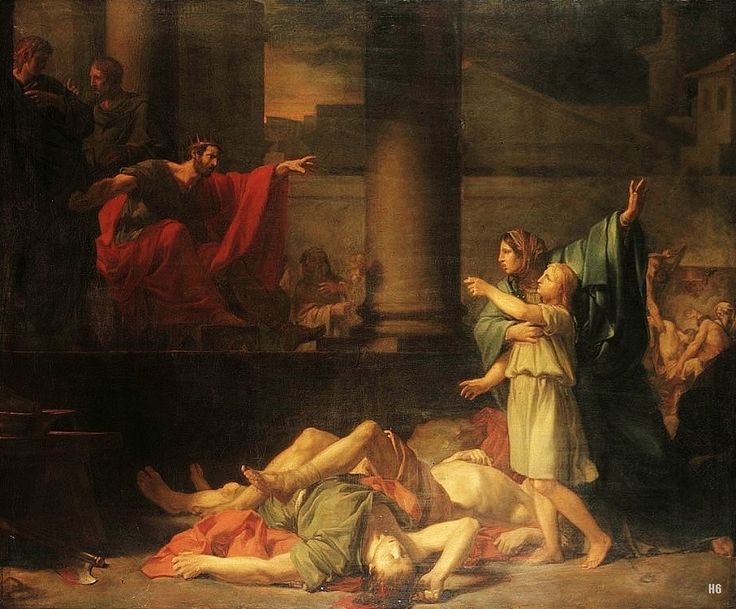
 One of the purposes of Menorah lighting is to publicize the miracle to one’s family. Therefore, the entire family should be present during the Menorah lighting, including children old enough to watch.
One of the purposes of Menorah lighting is to publicize the miracle to one’s family. Therefore, the entire family should be present during the Menorah lighting, including children old enough to watch.
 If the entire household cannot be present at the lighting, they are nevertheless included in the lighting when one member is authorized to light on everyone’s behalf.
If the entire household cannot be present at the lighting, they are nevertheless included in the lighting when one member is authorized to light on everyone’s behalf.
 In order to increase the publicity of the miracle Hashem did for us, many people light the Menorah at the window (as was once the custom). Many people light the Menorah at the inner front door to their homes. They place it facing the Mezuzah, so that the entrance to their home is surrounded by Mitzvos (Commandments). But the truth is that anywhere the family can see it is acceptable.
In order to increase the publicity of the miracle Hashem did for us, many people light the Menorah at the window (as was once the custom). Many people light the Menorah at the inner front door to their homes. They place it facing the Mezuzah, so that the entrance to their home is surrounded by Mitzvos (Commandments). But the truth is that anywhere the family can see it is acceptable.
 Use a shammosh (a separate candle used to serve the others) to kindle the Chanukah Menorah lights. The shammosh has its special holder in the Menorah, and it should be above the other eight. Keep the shammosh burning also. Never use any Chanukah light to light anything else, even another Chanukah light. When necessary, use the shammosh.
Use a shammosh (a separate candle used to serve the others) to kindle the Chanukah Menorah lights. The shammosh has its special holder in the Menorah, and it should be above the other eight. Keep the shammosh burning also. Never use any Chanukah light to light anything else, even another Chanukah light. When necessary, use the shammosh.
 The Chanukah Lights may not be used in any way, as they burn. We may especially not use them for light. Their purpose is to celebrate the miracles Hashem performed for our ancestors at this time of year. To remind us of this, we light an extra light, called a shammosh (attendant), which should be placed higher than the others.
The Chanukah Lights may not be used in any way, as they burn. We may especially not use them for light. Their purpose is to celebrate the miracles Hashem performed for our ancestors at this time of year. To remind us of this, we light an extra light, called a shammosh (attendant), which should be placed higher than the others.
 The first night we light the light at the far right of the Menorah. The second night we add a new light to the left, the third night we add another light to the left of the first two, and so on, each night. After making the blessings, we light the leftmost light first, and then travel to the right, lighting as we go. So, on the eighth night, we place one candle (or oil and wick) in the holder at the right, then we place another one in the next holder, and keep on going to the left. Then we recite the blessings, and light the lights from left to right. So, the first one we prepare in the Menorah is the last one we light.
The first night we light the light at the far right of the Menorah. The second night we add a new light to the left, the third night we add another light to the left of the first two, and so on, each night. After making the blessings, we light the leftmost light first, and then travel to the right, lighting as we go. So, on the eighth night, we place one candle (or oil and wick) in the holder at the right, then we place another one in the next holder, and keep on going to the left. Then we recite the blessings, and light the lights from left to right. So, the first one we prepare in the Menorah is the last one we light.
 Anything that burns clearly without a smell is acceptable, however, olive oil is the most preferred, because the miracle took place with olive oil.
Anything that burns clearly without a smell is acceptable, however, olive oil is the most preferred, because the miracle took place with olive oil.
 The flame of each light must be a small flame, like that of a single candle or oil light. The wicks should therefore not be a series of wicks plaited or held closely together, nor should they be very thick wicks.
The flame of each light must be a small flame, like that of a single candle or oil light. The wicks should therefore not be a series of wicks plaited or held closely together, nor should they be very thick wicks.
 One cannot fulfill the Commandment to light the Chanukah Menorah by using an electric Menorah. There are a number of reasons for this, but they involve a long, deep discussion of Jewish Law, and I’d like to keep this page easy reading.
One cannot fulfill the Commandment to light the Chanukah Menorah by using an electric Menorah. There are a number of reasons for this, but they involve a long, deep discussion of Jewish Law, and I’d like to keep this page easy reading.
 The eight lights must all be at the same height, and should be placed in one straight line, with the shammosh a little higher. When looking straight at the Menorah, one should clearly be able to see that there are eight lights burning (or whatever number, for whatever night it is). The lights should not be arranged with some behind others.
The eight lights must all be at the same height, and should be placed in one straight line, with the shammosh a little higher. When looking straight at the Menorah, one should clearly be able to see that there are eight lights burning (or whatever number, for whatever night it is). The lights should not be arranged with some behind others.
 If you cannot get hold of enough candles (or oil or wicks) to light each night, you may light just one each night, reciting all the same blessings first. The Rabbis instituted that we light at least one light each night of Chanukah to celebrate the miracle. However, the Rabbis also instituted that those who wish to perform the Commandment in the best possible way should light an extra light each night of Chanukah, so that on the eighth day we would be lighting eight days, and thus announcing how many days the miracle occurred. But the absolute necessary minimum is one light per night, and if you do it that way, you have fulfilled the basic Commandment.
If you cannot get hold of enough candles (or oil or wicks) to light each night, you may light just one each night, reciting all the same blessings first. The Rabbis instituted that we light at least one light each night of Chanukah to celebrate the miracle. However, the Rabbis also instituted that those who wish to perform the Commandment in the best possible way should light an extra light each night of Chanukah, so that on the eighth day we would be lighting eight days, and thus announcing how many days the miracle occurred. But the absolute necessary minimum is one light per night, and if you do it that way, you have fulfilled the basic Commandment.
 If you miss one night, continue lighting the following nights the same number of lights the rest of the Jewish world is lighting.
If you miss one night, continue lighting the following nights the same number of lights the rest of the Jewish world is lighting.
 The proper time to light is as soon as full night has arrived, as Jewish Law defines it (Halachic night). In North America, this is generally around 50 minutes after sunset. That is the proper and best time. Except in certain situations, like on Fridays (see below), one should not light before that time. Ideally, one should not light much later than that either, but if one could not light at that time, or one forgot to light on time, it is permissible to light the entire night (even a few minutes before dawn).
The proper time to light is as soon as full night has arrived, as Jewish Law defines it (Halachic night). In North America, this is generally around 50 minutes after sunset. That is the proper and best time. Except in certain situations, like on Fridays (see below), one should not light before that time. Ideally, one should not light much later than that either, but if one could not light at that time, or one forgot to light on time, it is permissible to light the entire night (even a few minutes before dawn).
 The lights must burn for at least half an hour. At least one half hour of burning must take place during the Halachic night. After the half hour is done, it is permitted to extinguish the lights, unless it is the Sabbath.
The lights must burn for at least half an hour. At least one half hour of burning must take place during the Halachic night. After the half hour is done, it is permitted to extinguish the lights, unless it is the Sabbath.
 When you kindle the lights, there must be enough fuel in them to burn for the necessary time. If any of the lights accidentally burn out before the time has passed, it is not necessary to rekindle the lights.
When you kindle the lights, there must be enough fuel in them to burn for the necessary time. If any of the lights accidentally burn out before the time has passed, it is not necessary to rekindle the lights.
 When lighting on Friday evening, we cannot light once the Sabbath has started. So, we light just before lighting the Sabbath candles, which is 18 minutes before sunset. Therefore, the lights must have enough fuel (large candles, or lots of oil) to burn for at least 98 or more minutes. Why 98? It’s simple arithmetic: 18 minutes until sunset, 50 minutes until Halachic night begins, and another thirty minutes of required burning time during Halachic night. (18+50+30=98.)
When lighting on Friday evening, we cannot light once the Sabbath has started. So, we light just before lighting the Sabbath candles, which is 18 minutes before sunset. Therefore, the lights must have enough fuel (large candles, or lots of oil) to burn for at least 98 or more minutes. Why 98? It’s simple arithmetic: 18 minutes until sunset, 50 minutes until Halachic night begins, and another thirty minutes of required burning time during Halachic night. (18+50+30=98.)
 Once the Sabbath is started, it is forbidden to light fires. If you missed lighting the Menorah and the Sabbath has already started, it is too late for that night. What you should do then is look for the lights lit in someone else’s window, or visit a Jewish friend who has lit a Menorah, and recite the second blessing (the one about the miracles).
Once the Sabbath is started, it is forbidden to light fires. If you missed lighting the Menorah and the Sabbath has already started, it is too late for that night. What you should do then is look for the lights lit in someone else’s window, or visit a Jewish friend who has lit a Menorah, and recite the second blessing (the one about the miracles).
 On Saturday nights, the Sabbath must end completely (that is, it must be full Halachic night) before we may light the Chanukah Menorah. The Havdalah Ceremony is performed before the lighting of the Chanukah Menorah.
On Saturday nights, the Sabbath must end completely (that is, it must be full Halachic night) before we may light the Chanukah Menorah. The Havdalah Ceremony is performed before the lighting of the Chanukah Menorah.
 After lighting, women do no work (including cooking) during that first half hour. (Even if the lights burn longer, this law applies only for the first half hour.) This is the woman’s special holiday time, and does not apply to men. For the reason for this rule, see my page: The Courage of the Women.
After lighting, women do no work (including cooking) during that first half hour. (Even if the lights burn longer, this law applies only for the first half hour.) This is the woman’s special holiday time, and does not apply to men. For the reason for this rule, see my page: The Courage of the Women.
 It is forbidden to move the Menorah during that half hour of burning. This Law applies for only the first half hour, even if the lights burn longer. (Reminder: It is forbidden to move the Menorah throughout the entire Sabbath. Keep this in mind, if you have toddlers in the house. Always light the Menorah where children cannot reach it.)
It is forbidden to move the Menorah during that half hour of burning. This Law applies for only the first half hour, even if the lights burn longer. (Reminder: It is forbidden to move the Menorah throughout the entire Sabbath. Keep this in mind, if you have toddlers in the house. Always light the Menorah where children cannot reach it.)
The Lighting
Recite: I am hereby ready and prepared to fulfill the Commandment of Lighting the Chanukah Menorah.
Recite the blessings:
Boruch Attah Adonoy, Elohainu Melech ha-olam, asher kidishanu b’mitzvotav, v’tsivanu l’hadlik ner shel Chanukah.
(Blessed are You, Hashem our G-d, King of the universe, Who has made us holy through His commandments, and commanded us to light the Chanukah light.)
Boruch Attah Adonoy, Elohainu Melech ha-olam, she-asah nissim la’avosainu bayamim hahaim bazman hazeh.
(Blessed are You, Hashem our G-d, King of the universe, Who performed miracles for our ancestors in those days at this time.)
Only on the first night recite:
Boruch Attah Adonoy, Elohainu Melech ha-olam,
she-hecheyanu, vikiyamanu, vihigianu lazman hazeh.
(Blessed are You, Hashem our G-d, King of the universe, Who has kept us alive, sustained us, and brought us to this time.)
Light the first light. As you light the other lights (or on the first night, after you have finished lighting) recite or sing the following threnody:
We kindle these lights because of the miracles, the wonders, the salvations, and the victories that You, Hashem, did for our ancestors in this season, through the agency of Your holy Kohanim (Priests).
Throughout the eight days of Chanukah, these lights are holy, and we may not use them for anything. We may only look at them, to enrich the experience of thanking and praising Your holy and great Name for Your wonders and Your salvations.
Afterwards, we sing the following hymn to Hashem, called:
MAOZ TZUR:
Rock of Strength
O mighty stronghold of our salvation,
to praise You is a delight.
Restore our House of Prayer
and there we will bring a thanksgiving offering.
When You will have disposed of Israel’s enemies,
Then we shall complete, with a song of hymn,
the dedication of the Altar.
The soul of our people has been filled with troubles
our strength has ebbed from grief.
They embittered our lives with hardship
in this exile that is as bad as the exile in
Back then, Hashem brought forth His treasured people
with His great power,
and Pharaoh’s army, and all his offspring
went down like a stone in the deep waters.
To the Holy Temple Hashem then brought us.
But there, too, we had no rest for long.
An oppressor came and exiled us again
Because we had practiced foreign customs
and enjoyed forbidden acts that dulled our spiritual values.
But not long after we were exiled to Babylon
we returned with our leader Zerubabel;
after just seventy years of exile we were saved.
While we were in that exile,
Haman the Amalekite tried to destroy Mordechai and us.
Instead, it became a trap and a stumbling block for him
and his arrogance was put down.
You promoted the Benjamite, Mordechai;
You destroyed the name of the enemy
and he and his sons You hanged on the gallows.
During the time of the Second Temple,
Greeks gathered against us,
during the time of the Hasmoneans.
They breached the walls of our Holy Temple,
and they defiled all the oil jars.
And from one remnant of the flasks
a miracle was wrought for the Jews, the «roses.»
The men of wisdom established eight days
for song and jubilation.
Display Your holy might
and hasten the end of the exile, and give us salvation.
Avenge the death of Your servants,
whom the wicked nations have killed
The triumph has been too long delayed for us
and there seems to be no end to the days of evil
Repel those who would keep us in exile
and raise up for us the Seven Shepherds.
 It is the custom among Hassidim to sit at the Menorah for the first half hour after lighting, studying Torah or singing Chanukah songs. Each moment we spend there is another moment fulfilling the Commandment of Chanukah Lights.
It is the custom among Hassidim to sit at the Menorah for the first half hour after lighting, studying Torah or singing Chanukah songs. Each moment we spend there is another moment fulfilling the Commandment of Chanukah Lights.



